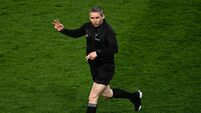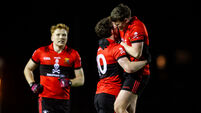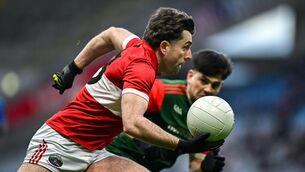Dr Ed Coughlan: Mayo’s 10 steps to heaven

Sunday will be their 10th match of this year’s Championship and, remarkably, they have managed to convince many that this is the year they will lift the Sam Maguire Cup, for the first time since 1951.
Save a thought for their supporters who must be recognised among the greatest sets of fans of all time, such is their belief and resilience in the face of adversity. Like many managers and coaches who profess to take it one match at a time as they invest in the process, the Mayo supporters also appear to have become lost in the process, meeting every game with no hint of history weighing them down.














